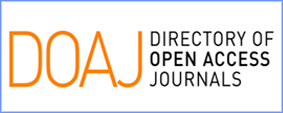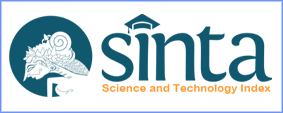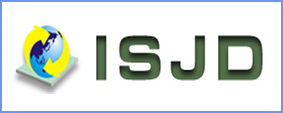Profile of Learning Independence in Achieving Creative Thinking Ability of Vocational School Students
Abstract
Keywords
Full Text:
PDFReferences
Cheng, E. C. K. (2011). The Role of Self-regulated Learning in Enhancing Learning Performance. 6(1), 1–16.
Fatah, A., Suryadi, D., & Sabandar, J. (2016). OPEN-ENDED APPROACH : AN EFFORT IN CULTIVATING STUDENTS ’ MATHEMATICAL CREATIVE THINKING ABILITY AND SELF-ESTEEM IN MATHEMATICS. 7(1), 11–20.
Kana Hidayati & Endang Listya. (2013). IMPROVING INSTRUMENTS OF STUDENTS’ SELF-REGULATED LEARNING Kana Hidayati and Endang Listyani FMIPA UNY Mathematics Education Department.
Mauludin, A., & Nurjaman, A. (2018). ANALISIS PENGARUH SELF REGULATED LEARNING. 1(2), 193–200. https://doi.org/10.22460/jpmi.v1i3.219-228
Muhammad, K., & Fauzi, A. (2011). P – 11 Peningkatan Kemampuan Koneksi Matematis Dan Kemandirian Di Sekolah Menengah Pertama A . Latar Belakang atau bahan yang telah dipelajari siswa sebelumnya . Ini sesuai dengan faham mengalami proses asimilasi , akomodasi dan kesetimbangan . sektor pem. 978–979.
Pehkonen, E. (1983). Fostering of Mathematical Creativity. 63–67.
Pendidikan, M., Kebudayaan, D. A. N., & Indonesia, R. (2013). No Title.
Rijali, A. (2018). Analisis Data Kualitatif Ahmad Rijali UIN Antasari Banjarmasin. 17(33), 81–95.
Saputra, H. (2009). MATEMATIS. 2005.
Schunk, D. H. (1989). 4. Social Cognitive Theory and Self-Regulated Learning.
Silver, E. A. (n.d.). Fostering Creativity through Instruction Rich in Mathematical Problem Solving and Problem Posing.
Sitorus, J., & Doctoral, M. (2016). Title page Students ’ creative thinking process stages : implementation of realistic mathematics education. Thinking Skills and Creativity. https://doi.org/10.1016/j.tsc.2016.09.007
Sternberg, R. J. (2009). Academic Intelligence is Not Enough WICS : An Expanded Model for Effective Practice in School and Later in Life. Liberal Education and Effective Practice, 45.
Syahputra, D. (2017). Pengaruh kemandirian belajar dan bimbingan belajar terhadap kemampuan memahami jurnal penyesuaian pada siswa SMA Melati Perbaungan. AT-TAWASSUTH: Jurnal Ekonomi Islam, 2(2), 368–388.
http://jurnal.uinsu.ac.id/index.php/tawassuth/article/view/1227
Zumbrunn, S., Tadlock, J., & Roberts, E. D. (2011). Encourage Self Regulated Learning in the Classroom Encouraging Self-Regulated Learning.
Article Metrics
Abstract has been read : 788 timesPDF file viewed/downloaded: 0 times
DOI: http://doi.org/10.25273/jipm.v9i1.5859
Refbacks
- There are currently no refbacks.
Copyright (c) 2020 JIPM (Jurnal Ilmiah Pendidikan Matematika)

This work is licensed under a Creative Commons Attribution-ShareAlike 4.0 International License.
View JIPM Stats
JIPM indexed by:
Copyright of JIPM (Jurnal Ilmiah Pendidikan Matematika) ISSN 2502-1745 (Online) and ISSN 2301-7929 (Print)













